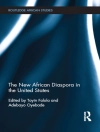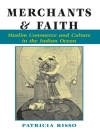The Western tradition of excluding women from leadership and disparaging their ability to lead has persisted for centuries, not least in Germany. Even today, resistance to women holding power is embedded in literary, cultural, andhistorical values that presume a fundamental opposition between the adjective ‘female’ and the substantive ‘leader.’ Women who do achieve positions of leadership are faced with a panoply of prejudicial misconceptions: either considered incapable of leadership (conceived of as alpha-male behavior), or pigeonholed as suited only to particular forms of leadership (nurturing, cooperative, egalitarian, communicative, etc.).
Focusing on the German-speakingcountries, this volume works to dismantle the prevailing disassociation of women and leadership across a range of disciplines. Contributions discuss literary works involving women’s political authority and cultivation of community from Maria Antonia of Saxony to Elfriede Jelinek; women’s social activism, as embodied by figures from Hedwig Dohm to Rosa Luxemburg; women in political film, environmentalism, neoliberalism, and the media from Leni Riefenstahlto Petra Kelly to Maren Ade; and political leaders Hillary Clinton and Angela Merkel.
Contributors: Dorothee Beck, Seth Berk, Friederike Brühöfener, Margaretmary Daley, Aude Defurne, Helga Druxes, Sarah Vandegrift Eldridge, Anke Gilleir, Rachel J. Halverson, Peter Hudis, Elisabeth Krimmer, Stephen Milder, Joyce Marie Mushaben, Lauren Nossett, Patricia Anne Simpson, Almut Spalding, Inge Stephan, Lisa Fetheringill Zwicker.
Elisabeth Krimmer is Professor of German at the University of California, Davis. Patricia Anne Simpson is Professor of German at the University of Nebraska-Lincoln.
Table des matières
Introduction – Elisabeth Krimmer and Patricia Anne Simpson
Women’s Political Authority in Maria Antonia Walpurgis von Sachsen’s
Talestris: Königin der Amazonen (
Thalestris: Queen of the Amazons, 1763) – Seth Berk
Maxims of Leadership for a Silent Readership: Sophie von La Roche’s
Pomona für Teutschlands Töchter and
Mein Schreibetisch – Margaretmary Daley
Marcus Aurelius, Also for Girls: Discussions on the Best Form of Government in Enlightenment Hamburg – Almut Spalding
Dux Femina Facti: Gender, Sovereignty, and (Women’s) Literature; Marie Antonia of Saxony’s Thalestris and Charlotte von Stein’s
Dido – Anke Gilleir
Dux Femina Facti: Gender, Sovereignty, and (Women’s) Literature in Marie Antonia of Saxony’s Thalestris and Charlotte von Stein’s
Dido – Aude Defurne
Crossing the Front Lines: Female Leadership, Politics, and War in
Die Familie Seldorf – Sarah Vandegrift Eldridge
Power Struggles between Women in Schiller’s and Jelinek’s Works – Inge Stephan
Age and Purpose: Unmarried Women and Female Agency in the Works of E. Marlitt and Hedwig Dohm – Lauren Nossett
‘Heroism of the Mother’: Women’s Right’s Pioneer Jeannette Schwerin, Motherlove, and Women’s Leadership in German-Speaking Central Europe, 1890-1914 – Lisa Fetheringill Zwicker
Strategic Optimism: Bertha von Suttner’s Activism for Peace – Elisabeth Krimmer
Humanizing Socialism: The Feminist Dimension of Rosa Luxemburg’s Intellectual Leadership – Peter Hudis
Follow-the-Leader: Tracing Male Influence on Leni Riefenstahl’s
Triumph des Willens – Rachel J. Halverson
‘Leaning In’: The Career Woman as Instrument of Neoliberal Critique – Helga Druxes
Change, Persistence, and Contradiction: The Representation of Female Political Leadership in Gendered Media – Dorothee Beck
Petra Kelly: A Green Leader out of Place? – Stephen Milder and Friederike Brühöfener
‘Mama Merkel’ and ‘Mutti-Multikulti’: The Perils of Governing While Female – Patricia Anne Simpson
Women Leaders in Troubled Times: The Leadership Styles of Angela Merkel and Hillary Clinton – Joyce Marie Mushaben
Bibliography
Notes on the Contributors
Index
A propos de l’auteur
ELISABETH KRIMMER is Professor of German at the University of California, Davis.












